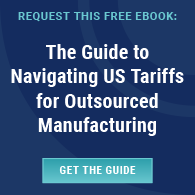At Altraco, we understand the importance of Mexico Manufacturing California and the benefits it brings to our clients. With over 35 years of experience in offshore manufacturing, we have established ourselves as a trusted partner in providing reliable and cost-efficient solutions for contract and private label manufacturing. Our long-standing factory relationships in multiple countries, including Mexico, ensure that our customers benefit from high-quality products while keeping costs down. We specialize in helping companies navigate tariffs and minimize disruptions to the supply chain, delivering on-time and efficient solutions. With a track record of 99.6% on-time deliveries, we pride ourselves on our commitment to excellence in manufacturing. Whether it's casting, extrusion, assembly, forging, or plastic molding, we have the expertise to meet diverse manufacturing needs. Contact Altraco today to learn more about how we can streamline your manufacturing processes and drive cost savings for your business. Mexico Manufacturing California

